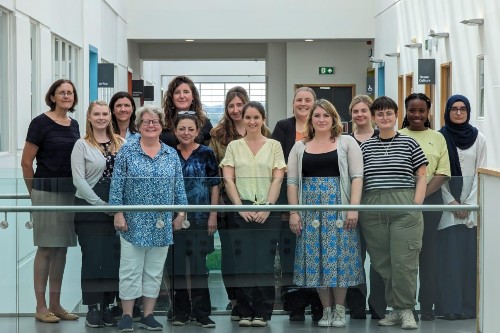A serious, lifelong autoimmune condition affecting over 9 million people globally1, type 1 diabetes occurs when the body’s immune system attacks and destroys insulin-producing cells in the pancreas, meaning people can no longer make their own insulin and their blood sugar levels become dangerously high. This requires lifelong insulin treatment.
Led by Bristol’s Professor Kathleen Gillespie, both studies will focus on preventing type 1 diabetes through improved understanding of how the condition develops in people who are at high risk, as well as those with diabetes.
The first study, funded by a £637,000 grant from Breakthrough T1D (formerly JDRF), will bring together experts from Bristol, Cardiff and Exeter universities to understand more about how immune cells traffic to the pancreas.
The second study, funded by a £420,000 grant also from Breakthrough T1D, focuses on the part of the pancreas which does not make insulin – the exocrine pancreas. This region decreases in size even before diagnosis and little is understood about how and why this happens.
Professor Kathleen Gillespie, lead researcher at the University of Bristol, said: "This research will help us understand how type 1 diabetes develops in people who already have the early markers of type 1 diabetes, proteins called autoantibodies in their blood, as well as those who have already developed diabetes. Better understanding of what happens before onset of type 1 diabetes will help us to prevent the condition in the future.”
Dr Caroline Schmutz, Head of Research Partnerships at Breakthrough T1D UK, said: "We are very excited to support Professor Gillespie’s projects looking to identify new signs that someone is at risk of developing type 1 diabetes and new targets for therapies to prevent the disease. The different approach she is taking will potentially open new avenues to interfere with the onset of type 1 diabetes and limit the impact of this condition on people’s lives."
The projects build on the success of the world-first roll out of the Type 1 Diabetes Risk in Adults (T1DRA) study launched on World Diabetes Day 2023 which sought to recruit 20,000 adults, aged between 18 and 70, from the general population to assess their risk. Within 12 hours more than 1,000 participants had signed up to the study and more than 7,000 are now part of the study, although more participants are needed.
To sign up to the T1DRA study visit: t1dra.bristol.ac.uk. Individuals identified as “at risk” are followed up each year. Studying samples from these individuals is an important part of the two new studies.
